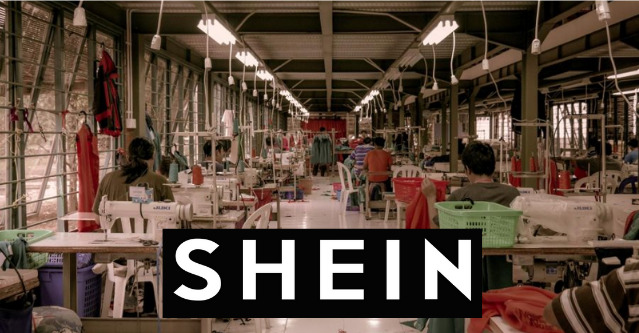Fast fashion in China is a humanitarian crisis, sporting poor work conditions, underpaid wages and overproduction. ‘Cheap’ high fashion Chinese brands like Shein and Clubfactory further reinforce these immoral issues. The Indian government in June 2020, banned 59 apps with links to the Chinese Communist Party and the People’s Liberation Army. These included TikTok, CamScanner, UC Browser and Shein as they were prejudicial to sovereignty, integrity and security of the country.
A major Humanitarian Crisis
Shein was founded in China in 2008, and that’s where all its clothes are made today. Shein offers numerous new styles every day at shockingly low prices. The cost is low as the manpower is usually underpaid and work under tremendous stress to produce a cheap batch of clothes.
Fast fashion in China is connected with forced labour trafficking. Moreover, the fast fashion industry in China recruits illegal child labour to maintain a high production rate. The circumstances are so unethical that they violate China’s own labour laws. The workers of the fast fashion industry do not have access to adequate hygiene and have unmatchable quotas, and they face serious health risks.
As per reports by US officials and human rights organisations, China uses forced labour in the cotton fields and factories in the Xinjiang region and mostly that of the Uyghurs and ethnic Kazakhs imprisoned in the vast internment camps that the Chinese government has built in the region in recent years.
Environmental Issue
The Chinese fast fashion industry is based on overproduction and generates tremendous waste. Much of the clothing goes out of style and is undesirable shortly after being produced. Instead of recycling unused clothing or responsibly disposing of it, companies throw away large quantities of wearable products every year.
Chinese companies discard approximately 26 million metric tons of clothing every year. Chinese companies, like Inditex, are contributing to the problem of overproduction. Chinese media have reported multi-storey fast fashion stores selling products on extreme clearance to get rid of products.
Fast fashion sweatshops produce exorbitant amounts of carbon emissions and toxic chemicals, deteriorating the environment as well. Sites like Shein and Clubfactory are some of the prime examples of fast-fashion portals which provide cheap products around the world at the cost of exploited manpower.
Shein against its Code of Conduct
According to Venetia La Manna, a fair fashion campaigner, influencer, and co-founder of Remember Who Made Them, a campaign to support garment workers, nothing about Shein is ethical. “The main issue with Shein is their sheer lack of ethics,” she tells Green Matters. Shein’s scale of output is unsustainable for our planet and its finite resources,” added La Manna. “There’s also zero evidence to suggest that they pay their workers fair living wages and they continue to outright steal designs from independent brands.”
La Manna’s vision for the future of the fashion industry involves completely “breaking down the fast fashion industry”, or “a dismantling of the system as we know it!”
Although Shein’s Code of Conduct declares “must comply with local laws regarding environmental protection and wastewater emissions, and that partners must adopt reasonable measures to reduce or mitigate the impact of their operations on the environment, and be committed to continuously improving the environment,” these claims are very vague, as Shein does not have any third party certifications proving the same.
After a year and a half, Shein made a comeback in India through Amazon’s two-day Prime Sale, it was utterly shocking to see the Indian youth’s excitement reaching their peak to shop from the same.
Unaware of the fact that their clothes come from a human resource exploited factory. Many influencers across the world have started to shun fast fashion quoting that it is inhuman to produce such products.
India should focus on locally produced or ethical indigenous clothing brands like the Urban Monkey, The Purple Sack, The Tassel Life, Scorpion Scissors which might be a bit expensive, but they are ethical and indigenously produced.
From worker’s low wages and poor working conditions; to the environmental and social costs involved in fast fashion, there are enough valid reasons why it should be avoided at all costs.
Indian government’s ban on Shein is highly justifiable and a relaunch should be boycotted. Before glorifying Chinese luxury yet “Cheap” high fashion brands, the Indian youth should be aware of the fact that they are only promoting a global humanitarian crisis sponsored by Communist China which should be avoided. Instead, the youngsters can opt for Indian-made Khadi and other high street fashion brands, promote Indian made products.
